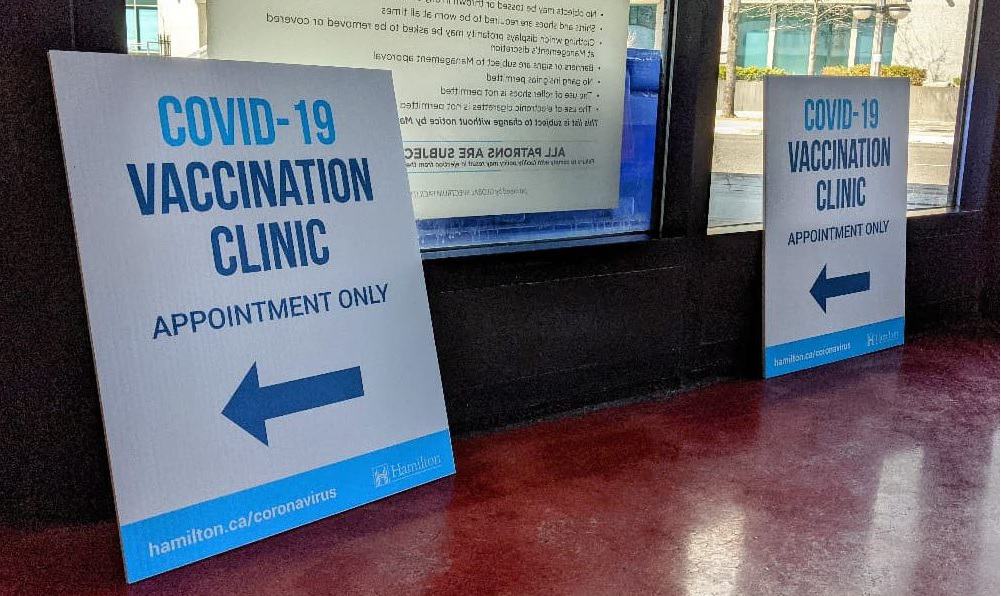COVID vaccine confidence was high among Canadian adults – has that changed? Hamilton-based researchers have answers
Published April 13, 2022 at 3:45 pm

COVID-19 vaccine confidence among Canadian adults was among the highest in the world, even before the shot was widely available. But have they become more or less hesitant about the vaccine over time?
Researchers from McMaster University in Hamilton wondered the same thing. With researchers from McGill University in Montreal, they analyzed data from nearly 24,000 middle-aged and older adults enrolled in the Canadian Longitudinal Study on Aging (CLSA) about their likelihood of getting the vaccine and factors associated with COVID-19 vaccine uptake.
Its findings represent the largest survey of COVID-19 vaccine willingness among older Canadians to date.
Parminder Raina is a researcher on the project and a professor in McMaster’s Department of Health Research Methodology, Evidence, and Impact.
“Our primary goal was to identify those who would benefit most from targeted outreach to improve COVID-19 vaccine uptake and provide much-needed evidence to inform vaccination programs,” said Raina, who is also the scientific director of the McMaster Institute for Research on Aging, in conversation with McMaster’s Laura Lawson.
The study analyzed CLSA COVID-19 questionnaire data collected in the fall of 2020 – before vaccines were readily available.

“Our study found that COVID-19 vaccine confidence has been high from the very beginning,” said lead author Nicole Basta, an infectious disease epidemiologist and associate professor of epidemiology and biostatistics at McGill. “Even before COVID-19 vaccines became available in Canada, the majority of older adults were willing to get vaccinated.”
The researchers found roughly 84 per cent of adults over age 50 were very or somewhat likely to get a COVID-19 vaccine, while approximately 10 per cent were uncertain, and six per cent were very or somewhat unlikely to receive the vaccine.
The results almost mimic the vaccination uptake rates in Canada, suggesting that those who were very or somewhat likely to get vaccinated in late 2020, did get vaccinated when eligible. In addition, vaccine coverage rates suggest the majority of people who were uncertain also got vaccinated, and those who expressed unwillingness, did not.
“Our findings suggest that most people had decided to get the vaccine before it was available and they followed through,” Basta said. “Our study suggests that little headway has been made in convincing the small percentage of people who were unwilling to get vaccinated initially to get vaccinated in the year since vaccines became available.”

According to the research, those who were unwilling to receive the vaccine were more likely to be younger — between 50 and 64 years old. They were also more likely to be female, have lower education and income, be a person of colour, and live in a rural area.
Concerns about safety and vaccine effectiveness were the most common reasons for those unlikely to get vaccinated.
On the flip side, individuals who had previously received a flu shot or had plans to receive a flu shot were also more willing to be vaccinated against COVID-19.
Willingness was also associated with having a personal negative experience from the virus or the pandemic as a whole.
Funding for the study was provided by the Juravinski Research Institute, McMaster University, the McMaster Institute for Research on Aging, the Nova Scotia COVID-19 Health Research Coalition, and the Public Health Agency of Canada.
insauga's Editorial Standards and Policies advertising





